[Continued from yesterday]
If there was one session that everyone was looking forward to at the Second Mysuru Literature Festival, organised by Mysuru Literary Forum Charitable Trust and Mysuru Book Clubs 2015 on Sunday, it was on wildlife called “Trails of Free Spirits.” And sure enough the distinguished panel all steeped in wildlife experience did not disappoint, as there was lot of heated or wild exchanges like the roar of a tiger or the trumpet of an elephant but without the ferocity, where everyone agreed to disagree.
The panellists included Saad Bin Jung, nephew of former India cricket captain Nawab of Pataudi, Prof. Priya Davidar, her husband Dr. Jean-Philippe Puyarvaud and Josuha Mathew with Patron of the Festival Raian Irani moderating. Both Prof. Priya and Dr. Jean-Phillipe shared the story of elephants Bommi, a single parent and Banta her calf, their friends from the wild side, which the audience heard in disbelief.
Then Raian posed the question to Saad Bin Jung, a pioneer of wildlife tourism — everyone knew that Jung came from the royal family, who were known for their shikars like most others were during those days, but what he thought of the hunting expeditions of the royals. The highly articulate, outspoken former cricketer began by telling that he disagreed with the panellists and recalled how Siasp Kothavala, who recently passed away and who ran a jungle resort near Masinagudi, had stood up against the Forest Department and fought all his life against highlighting man-animal conflict.
He also talked about how Mysore and its Maharajas stood first in wildlife protection while most of the other rulers killed for novelty. Though himself a royal descendant, he wryly remarked, how royals suffered from ‘small penis syndrome’ and hence displayed their manhood by hunting. “I say that Pataudis themselves did not indulge in killing wild animals. This killing without logic is something that is unacceptable to me,” he said and went a step further and blamed the forest officials for most of the damage caused to the forests.
Here Prof. Priya stepped in and said that there was lot of committed forest officers and staff who worked really hard and how much the tribals loved the animals. Then talking about man-animal conflict, she said, “Some of the farmers with low IQ grow sugarcane near the forest borders and then expect the elephants to keep away. These are the people who do not have local knowledge unlike the tribals.”
The counter from Saad Bin Jung was that it was possible to prevent the animals from straying into the farmlands by fencing and he had seen this successful experiment in South Africa where he is doing a lot of work. To this, Prof. Priya immediately shot back that she also had been to South Africa and found how many animals were dying because of electrification, to which all Saad could do was nod his head.
The next question that followed from Raian was about zoos in India and the view of the panellists as to whether it is a good idea to keep animals in enclosure for the people to watch them at close quarters or where do we draw a line, wherein author Joshua Mathew, who wrote the book ‘Last White Hunter,’ stepped in and shared his story.
He said that after listening to the stories from the last white hunter Don Anderson, about his own experience as a shikar, roaming the Bannerghatta forests in the 1950s and 60s, it was sad to see how the vast forest tract has turned into a concrete jungle.
Tiger Avni’s death
This conversation led to the most heated topic in the country today about killing of man-eating tiger Avni in Maharashtra. Saad Bin Jung passionately argued that the killing was correct as Avni had turned a man-eater. He asked, “All these activists are shouting that it was killed but what if it had killed their own kith and kin. There are NTCA (National Tiger Conservation Authority) guidelines which the Forest Department followed and there is no point in blaming the forest officials as they had done their duty by following the guidelines.”
He said that it was not possible to tranquillise a man-eating tiger from 15 feet and hence there was no option but to kill it. This was again countered by Prof. Priya who said that her own information and understanding was very different. She said that someone who does forensic reports had told her that the bodies that were found dead were of the old people who are likely to have been killed by their family members and not the so-called man-eating tiger.
In the question and answer session that followed, one of the audience asked whether animals could be adopted like it is being done now in the US and UAE, where exotic animals are allowed to be kept as pets to preserve wildlife, Raian pointed out that the scenario in India is different as the people here when they cannot look after their domesticated animals properly, looking after an animal from the wild was far-fetched, for which there was a cheer from the audience.
Saad Bin Jung shared on why it was being allowed in America for instance is because at one time they had wiped out the entire wildlife by hunting.
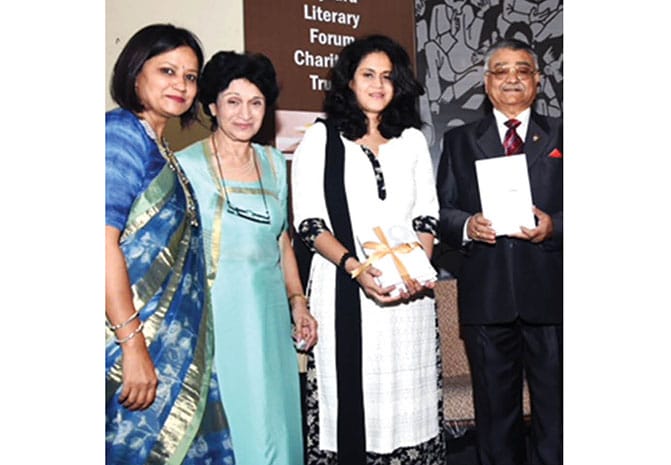
Star of Mysore Editor-in-Chief K.B. Ganapathy releasing the book ‘Once Upon A Lifetime’ as Mysuru Book Clubs 2015 Founder Shubha Sanjay Urs, Mysuru Literary Forum Charitable Trust Trustee Kitty Mandana and author Leila Alvares look on.
Even as this interesting session was going on, entrepreneur and author Aroon Raman was narrating “The Midnight Murder-A Tale from Medieval India,” which was followed by a book launch where author Leila Alvares talked about her book ‘Once Upon A Lifetime.’ Star of Mysore Editor-in-Chief K.B. Ganapathy released the book.
[To be continued tomorrow]



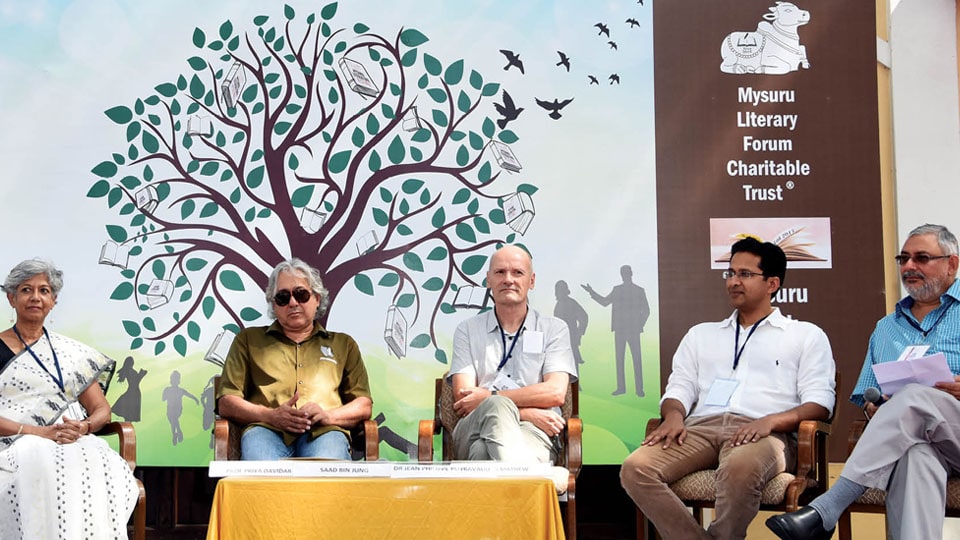
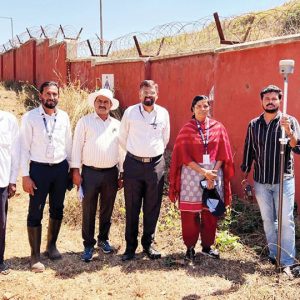

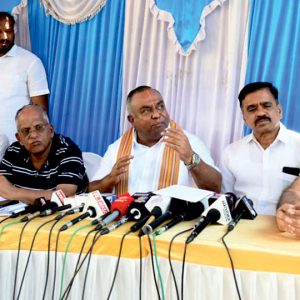
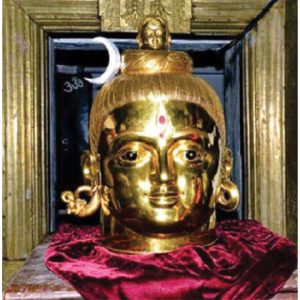
Recent Comments